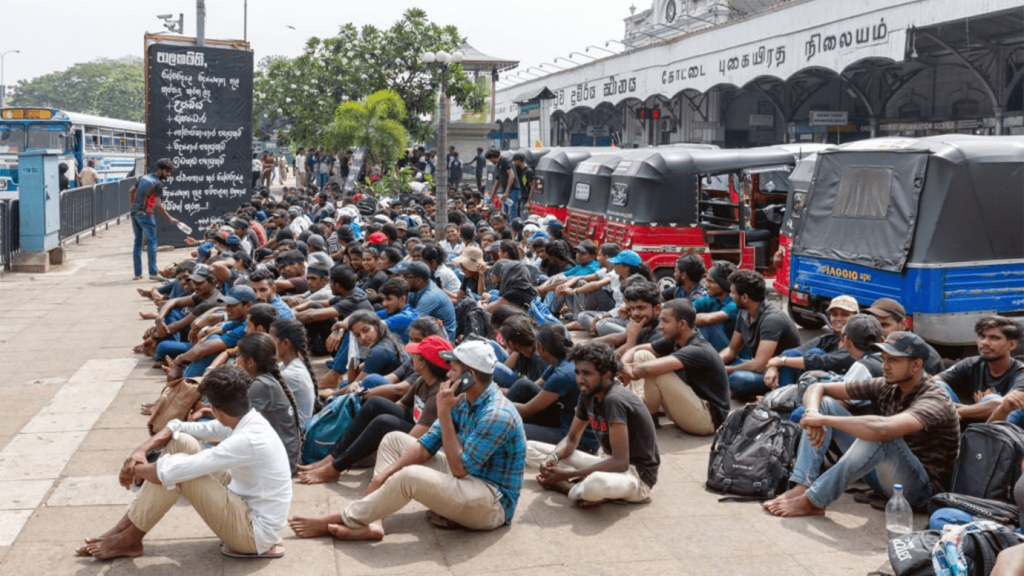
Canada Appeals for International Firefighting Aid
June 09, 2025: Canada has issued an international appeal for firefighting support as wildfires intensify across multiple provinces

July 22, 2022: -Inflation in Sri Lanka will peak at about 70% more in the next two months before it starts to moderate in September this year, according to its central bank governor Nandalal Weerasinghe.
According to government data, the National Consumer Price Index rose 45.3% year-on-year in May, a sharp spike compared to 33.8% in April. The data showed that food inflation also surged 58% year-on-year in May compared to 45.1% in April.
Maintaining that his calculations had factored in an “adjustment” to higher energy prices, the Central Bank of Sri Lanka governor told CNBC on Thursday that the country is capable of an “extended fund facility” from the International Monetary Fund of $3 billion for three years.
After defaulting on its foreign debt, the country faces a fuel shortage and social unrest, as angry protesters stormed the presidential palace the previous week. President Gotabaya Rajapaksa is fleeing the country after being forced to resign, which paves the way for Ranil Wickremesinghe to be elected president.
Protestors demanded the resignation of Sri Lanka’s President Gotabaya Rajapaksa by swimming in a pool inside the compound of Sri Lanka’s Presidential Palace in Colombo on July 9, 2022. Sri Lanka’s beleaguered President Gotabaya Rajapaksa fled his official residence in Colombo, a top defense source told AFP, before protesters gathered to demand his resignation is storming the compound.
Once the IMF starts dispensing money under what will be Sri Lanka’s 17th IMF program, other institutions like the World Bank and the Asian Development Bank will supplement these funds by an additional $4 billion, according to the central bank governor.
He said the present economic crisis is an opportunity for Sri Lankan authorities to learn from the previous mistakes and not reverse reforms once the IMF program ends.
“Once the is over, seeing authorities move back and reverse good policies,” he said.
“This is an opportunity for the authorities to learn a lesson and move in the right direction, even beyond the IMF program. That is the key to managing this economy sustainably,” the central banker said.
Conceding that while it is important to have a social safety net in place for the poor and disaffected, he added the root cause of the present economic crisis lies in decades of financial mismanagement.
″[The] government has been conducting large financial deficits for about 8% to 9% for long periods,” he added. “As a result, we have a high level of public debt that has become unsustainable.”
We provide the insights on leaders who are responsible for taking their organization to new heights, all the while bringing together a group of talented individuals.

June 09, 2025: Canada has issued an international appeal for firefighting support as wildfires intensify across multiple provinces

May 27, 2025: Air Canada Cuts Five U.S. Routes for Winter 2025–26, Part of Broader Cross-Border Retrenchment

May 26, 2025: Trump Freezes $2.2B in Federal Grants to Harvard Over DEI, Threatens Tax-Exempt Status.

May 14, 2025: Microsoft has announced plans to reduce its global workforce by approximately 3%, affecting roughly 10,000 employees across multiple departments.

May 13, 2025: The Trump administration is considering suspending the constitutional right of habeas corpus in a bid to accelerate mass deportations.

April 29, 2025: Donald Trump’s second term has reached the 100-day mark under sustained public skepticism, with national approval ratings